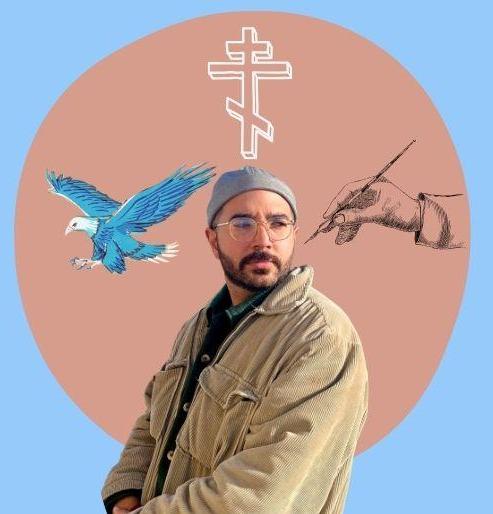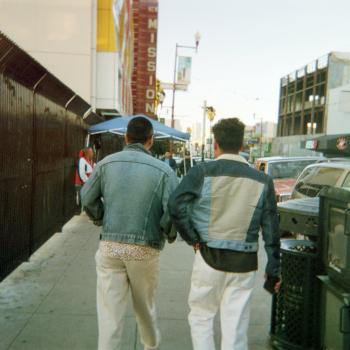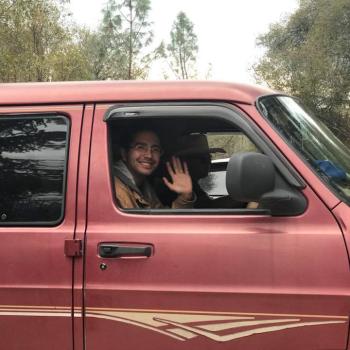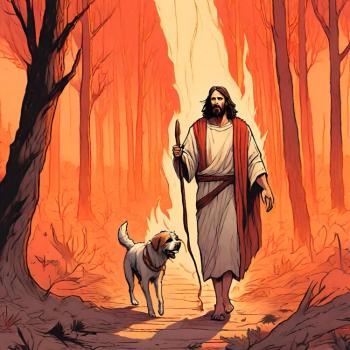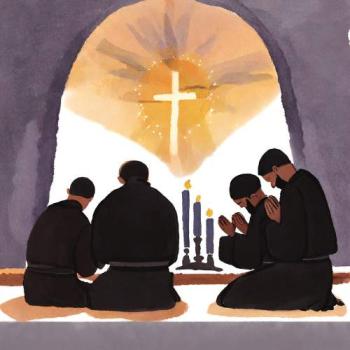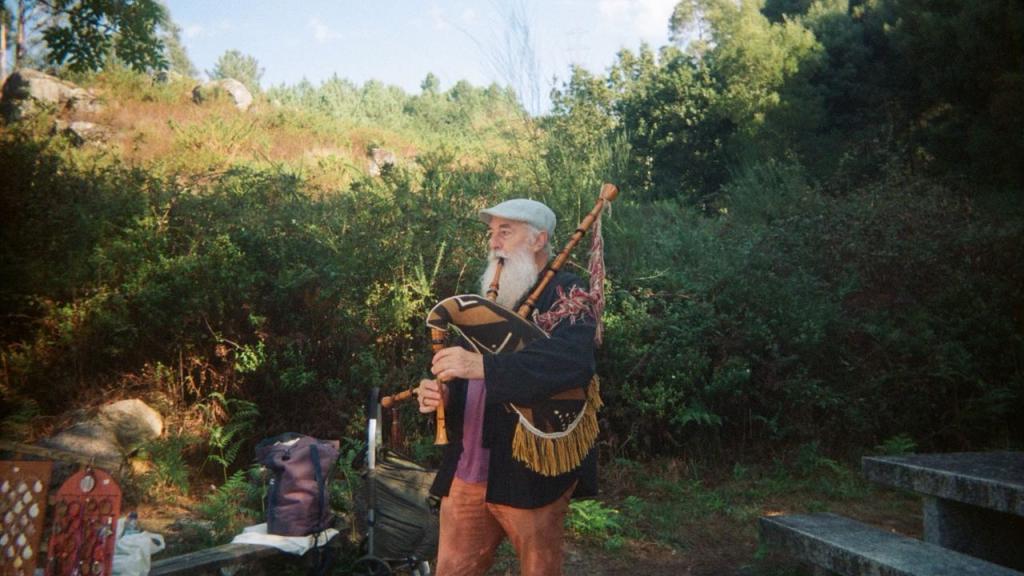
The Boy left his home. Comfort had swaddled him in a blanket and breastfed him long enough. It was time to cut ties with his village and head to the city. According to legend, the ghosts of exalted scribes still roam the streets. The Boy hoped by their intercession, he would be able to garner success and recognition. When he arrived at port, he noticed that the Golden Gate Bridge was not, in fact, golden, but he didn’t care.
The fog had just parted, revealing a concrete garden in need of exploration. An oracle on the ship, advised him to head to North Beach if he wished to meet his kinfolk. Sure enough, he found himself strolling through Sal Paradise Alley, nodding hello to the one-legged guitar player singing of a lover’s front door he no longer had the key for.
The musician ends his guitar solo abruptly and greets the boy, “Welcome to San Francisco, that’s Saint Francis with a capital ‘S’. The deli around the corner sells Nietzsche sandwiches with a side of Sartre soup; but you don’t need that kind of pessimism in your life. It’s better to look up, down, and all around, or else you might miss the whole plotline of this here motion picture. Now showing. Now showing.”
The Boy smiles and thinks to himself, “Ah, these alleyways will become my church pew; here, I’ll find the poems that God intended to write.”
At the end of the alley, just before the concrete turns into Chinatown, The Boy places three books by Raoul Duke on a makeshift altar. He bums a cigarette, lights it, and waves it over the books like incense. Then, he whispers a prayer: “I could use some of your mojo Duke. You came here and spoke to the storytellers of old and they led you to the Word. Do the same for me, show me the way.” The Boy pivots and walks towards a bookhouse.
He enters and asks the shopkeeper, “How can I learn to write?” The shopkeeper rolls her eyes and places them on the table before saying, “Read a book, become a drunkard, or go to that school down the road where you learn calligraphy and do yoga with goats. But be warned, if you see your darlings, be sure to kill them.” The Boy runs out of the shop and enrolls in courses.
With each passing day, the boy becomes more restless. He often daydreams and squints his eyes, pretending to pinch his professor’s head between his thumb and forefinger until it bursts open. The Boy continued to play this game until one day, his professor hit him over the head with Plato’s allegory of the cave. The Boy jolts out of his seat, and his mind begins to race.
“I am one of the souls chained to the wall. Fear has me by the scruff of my neck and pulls me back like a feeble puppy, telling me to follow the shadows and fetch.Where is the flame that will illuminate my darkened soul?”
The Boy feels a gentle tap on his shoulder. Startled, he turns to find a girl with a kind smile looking at him. “Are you okay?” she asks, her voice soft and concerned. The Boy explains that he is feeling anxious, his heart racing as he struggles to calm down. The girl reaches into her satchel and pulls out a small package filled with dried stems.
“Take a deep breath,” she says, handing him the package. “Say hello to the Golden Teacher. She holds all the answers you need” The Boy inspects the stems, unsure of what to make of them. Before he can say anything, the girl launches into a passionate speech about a bard named Watts. She spoke of his pamphlets and how they roused people from their slumber and showed them the truth.
“Religion, education, social norms- it’s all a fugazi,” she said, a mischievous glint in her eye. “The joke’s on us. All is one. Enter the void, tune into the cosmic frequency.” The Boy listens, fascinated and a little uneasy. Before he could thank her, the girl lights a sage stick and disappears into the sweet-smelling smoke.
The Boy eats the Golden Teacher. San Francisco’s skyline dissolves into a desert and he finds himself engulfed by a wave of intense visions, akin to those experienced by the great Old Testament prophet, Ezekiel. Gradually, the weight of his soul lifts, and he begins to swirl around with untethered abandon, much like a whirling Dervish in a trance. As The Boy looks around, he sees familiar shapes, but they seem to pulsate with a newfound life, and he notices intricate details in the most ordinary of objects.
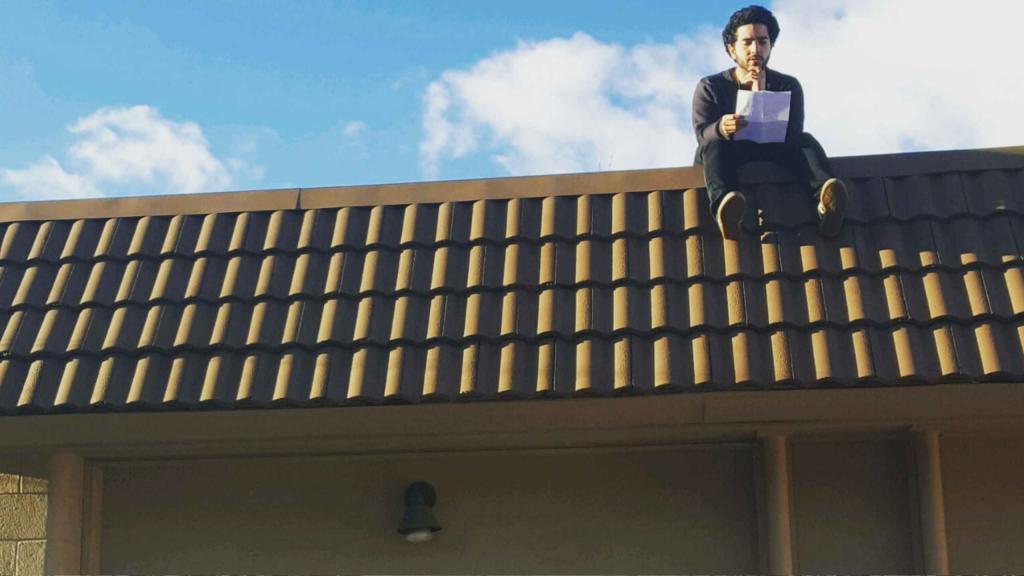
It’s as if a single, all-encompassing force is breathing life into everything around him.
In the midst of this experience, The Boy stumbles upon a group of fellow wanderers, who are encircled by cacti, sitting in the lotus position on the sand. As he approaches them, they welcome him into their tribe with open arms and teach him the sacred rites of their ceremonies. With each passing moment, the boy felt more and more at home with these kindred spirits, who seemed to have a deep understanding of the mystical forces that govern the universe.
The Boy eventually starts dressing like the other wanderers, wearing the traditional necklace of a serpent holding Merlinite in its mouth. He learns the tribe’s knowledge of auras, ESP, consciousness, and charcoal toothpaste. His hair grows longer, and the wilderness becomes his university. Most days, he does without food and spends hours meditating.
During his deep meditative states, The Boy experiences vivid lights and intricate geometric patterns. However, he is often disturbed by an annoying demon who tries to persuade him by saying, “You are nothing. Allow me to shape you and you will be something.”
If The Boy refuses to share his space with the demon, it overpowers him like a wolf asserting its dominance. The demon encourages him to play tricks on others, and if he declines, the demon’s laugh echoes in his ear, depriving him of sleep. The Boy can no longer meditate peacefully, so he decides to run away and keeps running until he returns to the city.
The Boy finds himself in a park and is overjoyed to see lush greenery, a navy blue sky, and a plethora of birds gathering around breadcrumbs. What a contrast to the barren desert! Unable to restrain himself, he hops up onto a picnic table and begins to recite a poem:
every road has a dead-end
when you are driving with no reserve
be mindful of the curve
in this colony of deceit
kaleidoscope dreams in this silent picture
whose emptied out the pitcher
left us with a thirst
the politically shallow
have sent us to the gallows
tellin’ me what I ought to be,
acting as if they’re the only ones freed
Leviathan has swallowed all the treaties
prophets and poets an endangered species
release me from the boiler room
once a gent, now a disheveled groom
people set to bloom, tell-tale art
no longer entertain these counterfeit hearts
The Prince led me to the shore
said I ought to explore each bit of sand
Father stretched his hand
But we overslept the blessing,
all these people start undressing
telling me I’m rather plain,
he who stalls will be slain.
The Boy hears applause. A group of winos begins to form around him, an elder speaks up, his voice raspy from years of hard living.”Well done, take a swig of the gourd as payment for your song!” The boy obliges and enjoys the warming sensation of the beverage. His spirit lifts once again. “Listen, young one,” the elder says, his eyes brimming with hope. “Just around the corner, there’s a little shop. And in that shop, there’s a scroll – a thing of beauty, really – that tells the story of a man on the road. But it’s not just any journey, mind you. It’s a journey to Truth itself.”
Enchanted by the elder’s words, The Boy decides to explore the mysterious shop. He steps inside the small, dimly lit store, and is immediately drawn to a wooden pedestal in the corner, on which rests a scroll. With trembling hands, The Boy picks up the ancient parchment and begins to read.
The tale captivates him, inspiring him to embark on a journey along the fabled highway known as Onward. As the boy walks down the dusty road, he encounters a myriad of strangers with stories to share. Some were kind and generous, offering him their wisdom and jovial company, while others were deceitful and tried to steal his possessions.
Despite the challenges, the boy continued on his journey, scaling the highest mountains with two wise sages, playing the sweet melodies of his flute for monks, dancing until dawn with the gracious proprietress of an inn, and venturing into uncharted territories, whose breathtaking beauty filled his heart with boundless joy.
The Boy gazes out at the infinite and enigmatic expanse of earth, contemplating how much there is to explore and experience, yet how little time each of us is allotted. Despite the serene environment, a sense of restlessness and melancholy gnaws at him from within. He feels as though he is both the prisoner and the warden of his own soul.
With each step he takes, his surroundings become increasingly indistinct and hazy, obscured by an encroaching snowstorm. He trudged on, driven by an unrelenting fear that stopping would mean certain death. Finally, his feet give out, and he collapses into a heap, feeling a warm sensation on his belly. Gradually, his vision returns, and he finds himself back at his home, lying on the porch and gazing up at the sky in wonderment. He tosses his worn-out shoes aside, as if casting off a burden. As he does so, The Boy is seized by the sensation of a powerful yet gentle hand resting on his chest, though there is no one else in sight.
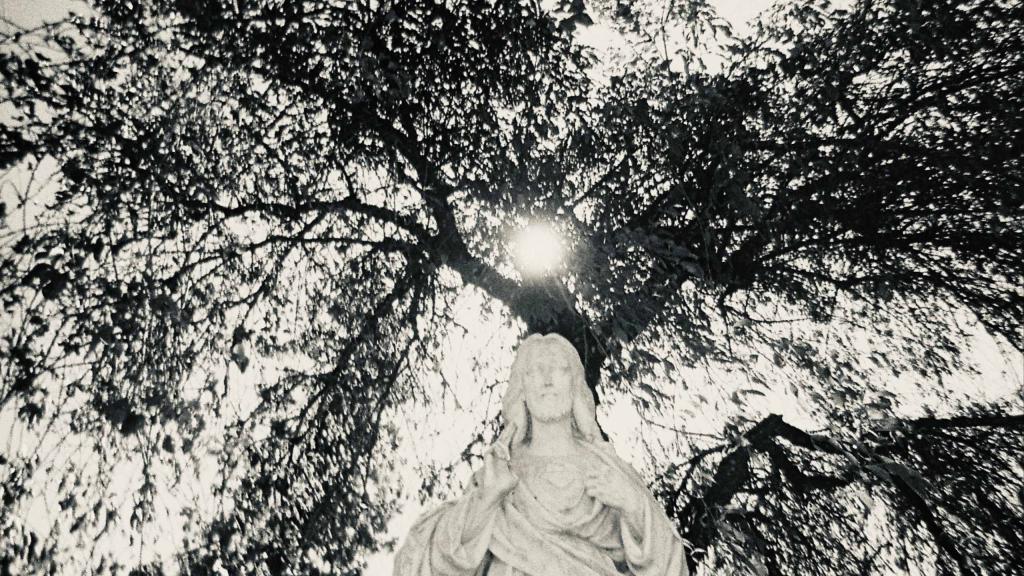
Then The Ancient of Days speaks:
here I AM, have you not heard my rap at the door?
is my voice, not a familiar song?
there is no escaping my face
like a stranger seated across the tavern,
I’ve been gazing at you from the start
each ensuing scene is but the expansion of love,
a drop in this ceaseless epic.
The journey is not outward
Make peace with yourself and both heaven and earth will make peace with you
Shalom, shalom my Son
The Boy began to cry deeply from within. As his tears dry up, he feels cleansed. Even after this sacrament of self-emptying, his heart is full to the brim, overflowing into excess. The Boy looks in the mirror and notices a scraggly beard, deep-set eyes, and aged, weather-worn skin. He smiles. The Boy has finally become a man.


